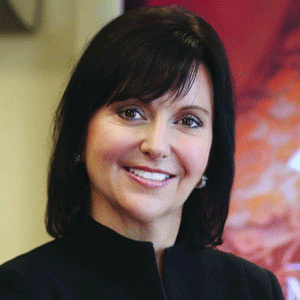THANK YOU FOR SUBSCRIBING

Context and Intent: Reducing User Effort to Search and Find the Perfect Trip in the Travel Industry
Sharon Doyle, VP Product Management, GTA


Sharon Doyle, VP Product Management, GTA
The world is your oyster. You can go any where. See every thing. Have amazing authentic experiences. This is what leisure travel is all about, right? Well yes, but choosing the right flight at the right price, finding the perfect hotel, and knowing what to do in destination takes lots of effort searching and comparing flights, hotels, & tours and trying to find the experience that is relevant for you, is an ever increasing time consuming task in a world of all you can choose. While meta search sites such as Skyscanner, Kayak and Trivago aim to bring this choice together in a single search interface, the explosion in these meta search sites them selves and the choice within them, is in fact adding to the complexity. For travelers who have little time to search or for travelers who the thought of hours of searching the web isn’t appealing this effort is becoming a challenge that many are finding over whelming and difficult to navigate. How can a traveler make sense of what is best for them amongst all the noise?
“ Watson help travellers to make better and easier decisions and help travel companies navigate through complex technical solutions”
This challenge is an area that the travel industry needs to solve and is actively looking at. How do we get the right information to the traveler in her search and how can it be customized for her? Most travelers are visiting an average of 38 websites while making travel plans so our opportunity to improve the user experience and make search relevant for that user is great. Removing the effort of decision making and the mental toll is critical.
Funnily enough, the traditional ‘offline’ travel agent copes with this issue really well. They know their clients, they ask the right questions and they make bespoke suggestions based on their experience and knowledge. To that, a traveler’s intent can change depending on their trip so it isn’t a case of each trip having the same requirements even when the traveler is the same. Travelers are also combining business and leisure together into a single trip meaning that intent can even change across that single trip. This is why the offline agent is some what bucking the trend against everything being online and many travelers are returning to this channel; we even see the digital native millennium looking for a human input in their travel decisions.
Some travel technology companies such as Lola are looking to bring that offline personal service online, connecting travelers to agents via instant-messaging where the move online is still about a human contact. For others however, along with many other industries, all the talk is centred on AI, big data for individual personalization, and natural language processing. Even Lola looks to provide ts agents with AI tools behind the scenes to give them greater ability to find the perfect trip.
Siri and Ask Google are already using natural language processing and predictive analytics to help us with day-to-day tasks and the move to using similar tools in travel is well underway. IBM’s Watson super computer can come up with trip-planning advice using cognitive analytics on social data (e.g. reviews) to find out what hotel or destination will appeal to different travelers. Watson even grows smarter by its elf through machine learning as it analyses more and more data. And Google are doing something similar with Deep Mind.
Companies like Wayblazer are using Watson to provide services to the travel industry to help the traveler make better and easier decisions and help travel companies navigate these complex technical solutions and improve conversion. Ultimately,we will focus on every traveler as an individual and no longer as segments. This really is the age then of true personalization. For the traveler it will appear you have a sixth sense where you can start to anticipate what they might want and act on it creating a story that is unique to them with relevant choice and the right content, images and descriptions to improve conversion.
If you are in the travel industry you are likely aware of these AI and personalization discussions. But irrespective of your industry, reducing decision paralysis through simple techniques like better sort order algorithms, small levels of content personalization, or that less choice can actually increase conversion in a world where we place heavier burdens on users by adding more and more data are the 2017's trends that you won’t be able to ignore.
Weekly Brief
I agree We use cookies on this website to enhance your user experience. By clicking any link on this page you are giving your consent for us to set cookies. More info
Read Also













